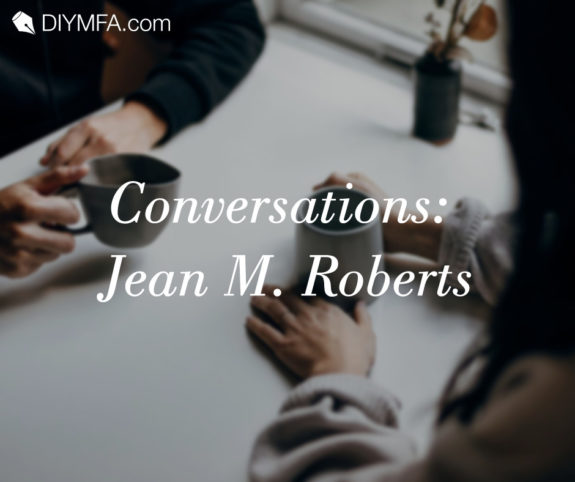Much of the space in this column has been devoted to the craft of historical fiction, the details that need to be accurate in our stories, and words of wisdom from some best-selling authors in our genre. So I thought it might be interesting to turn our attention to another challenge we all have: how to get our work found in the vast sea of books readers have to choose from.
We’ve all learned the importance of our author platform and listened to plenty of advice from experts on how to promote our books. Rather than trying to replicate any of that, I thought we’d narrow our focus to the role that book bloggers who specialize in our genre can play in helping to publicize our work.
About Jean M. Roberts and The Books Delight
Meet Jean M. Roberts, who is both an author and book blogger in our space and thus has a 360° view of the creative and promotional dynamics of getting a book out into the world and getting it noticed. Her blog – The Books Delight – is full of book reviews and author interviews specific to historical fiction. Jean was kind enough to spend some time sharing her perspective on the role of book bloggers as part of an overall promotional strategy.
The Interview
Pamela Taylor: The Books Delight is both the foundation of your author platform and your book blogger site. Would you share with us a bit of how you got started and how you’ve grown it?
Jean M. Roberts: In 2012, which seems like a really long time ago, I started a family history/genealogy blog. My writing involved a significant amount of research, and I was reading lots of history books as well as my usual historical fiction. On a whim, I wrote a few reviews of books I found particularly well written and helpful to my research. As I did more and more reviews, I started getting requests from authors and publishers. The reviews were overwhelming my genealogy posts. It was then that I decided to start a new blog dedicated to book reviews, author interviews, and of course, information about my own books.
I will occasionally review books other than historical fiction, but this genre is the mainstay of my blog. I find that people who love historical fiction are avid readers and are always hungry for recommendations.
Pamela Taylor: What advice do you have for published authors (Big 4 imprint, small press, or self-published) who want to engage with a book blogger who focuses on Historical Fiction?
Jean M. Roberts: This is a great question. I get bombarded daily by review requests and have to wade through them trying to decide which ones to read. My best advice is to research the reviewer. Find out their name, look at what books they have reviewed and make sure you’re a good fit for them. There’s no sense sending a Saxon battle novel to a reviewer who only reads Regency period historical romance! Just like a query letter, I would suggest you try to personalize the request, make a case for your book! I generally pass over generic requests that look like they’ve been emailed to dozens of other reviewers. If someone writes me a really personal request, I am much more likely to give them a read.
Pamela Taylor: I know you’re connected with the Coffee Pot Book Club (which specializes in Historical Fiction) and that you participate as a “stop” on their blog tours. Just to be sure everyone’s on the same page, could you describe how a blog tour works, what the various “stops” offer, and what the value is to an author of doing a blog tour?
Jean M. Roberts: A blog tour is a fun way to market your book to a specific readership. The tour organizer lines up bloggers, produces marketing materials, and assigns dates for the blogger to ‘host’ the book. Most tours include excerpts, blurbs, author interviews, guest posts, and/or reviews. Each day your book is on tour, whether it’s on consecutive days or once a week for a set number of weeks, the organizer, the bloggers, and the author promote the book on social media – usually the biggies: Twitter, Facebook, Instagram, Pinterest, and LinkedIn – to maximize exposure. For a small genre like historical fiction, this is a super way to get social media exposure to a wide audience.
Pamela Taylor: Do you recommend choosing a blog tour organizer that specializes in HF rather than a genre-neutral provider?
Jean M. Roberts: I would, especially if you have limited money to spend on marketing. You want your book in front of your genre readers. A general book tour might have a larger audience, but if they don’t read historical fiction then you’ve wasted your money. An added bonus, I also find that many of the bloggers who host historical fiction tours are writers of the genre themselves and are a great resource for marketing opportunities outside the tour. Doing a tour can be a great networking experience as well as a way to promote your book.
Pamela Taylor: At one point not many years back, it was thought that Historical Fiction had lost its luster, so to speak, and that other genres were on the ascendancy. Based on the books you’ve reviewed and the authors you’ve interviewed, does it seem to you that’s no longer the case?
Jean M. Roberts: Based on my experience on social media, I’d say that historical fiction writers are in the minority. Fantasy and YA seem to dominate the internet. The New York Times Bestseller list rarely has historical fiction in its rankings, and the big publishing houses don’t exactly churn out historical novels. That being said, there are smaller publishers willing to put out historical fiction and the rise of self-publishing/Indie publishing has given many historical fiction writers an opportunity to get their work published. The competition for readers and their limited time is tough. People who didn’t like history in school tend to carry that dislike over into reading which is a shame. The umbrella of historical fiction encompasses so many sub-genres. From romance, murder mystery, women’s issues, and military tales to spies and intrigue, there really is something for everyone.
Pamela Taylor: Are you currently open for new contacts? If so, what’s the best way for members of the DIY MFA community to engage with you?
Jean M. Roberts: Yes! I am open for book reviews, author interviews, and guest posts! I’d really like to do more guest posts. I’m not sure why so many authors shy away from them. It’s a great opportunity to say exactly what you want to say about your book(s). If anyone is interested, they can contact me via email at thebooksdelight@gmail.com. I do have a long TBR list, but sometimes the right book lands in my inbox and I have just got to read it right away!
Pamela Taylor: Your own books are set in colonial America, so I’m guessing that’s one of your favorite historical periods and locations. What’s one of the most curious or unexpected things you’ve discovered when researching that period?
Jean M. Roberts: Good question. First an observation: this time period is really underrepresented in historical fiction, especially the first 50 or so years of Colonial American history. It seems to pick up speed the closer you get to the American Revolution, and then, of course, the Civil War is very popular. There is a lot of untapped history waiting to be written.
I did quite a bit of research on early Colonial America while searching for my ancestors and was able to apply this to my books, Weave a Web of Witchcraft (set in 1651), Blood in the Valley (1751-1781), and The Heron (1691). The thing that really made an impression on me and is reflected in my books is how incredibly violent life was during the early settlement of America by European immigrants. From the 1676 conflict known as King Philip’s War to the onset of the American Revolution, there was an almost constant state of conflict in the colonies. Many of my ancestors were killed in attacks by Native Americans. Whether it was attacks/counterattacks from the native population or outright war with the French, America was a wild and dangerous place to live.
Jean’s latest novel was released in April 2021 and is available wherever you buy your books.

An award-winning author of historical fiction and a freelance editor, Pamela Taylor loves helping others polish their stories almost as much as she enjoys writing her own. She’s a member of the DFW Writers Workshop and the Editorial Freelancers Association and spent four years on the judges panel for the Ink & Insights Writing Contest. She shares her home with two Welsh Corgis who frequently remind her that a dog walk is a great way to get inspiration for that next chapter.







